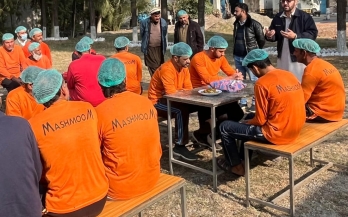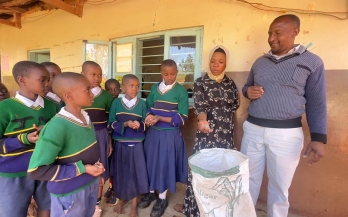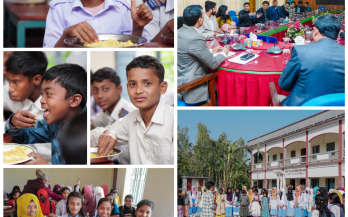Every day, thousands of workers across Pakistan’s Hattar Industrial Estate (HIE) clock into jobs that power the country’s manufacturing sector. From ceramics and textiles to printing, chemicals, and food production, these industries depend on a steady, skilled workforce. Yet, behind the manufacturing lines are workers whose nutritional needs are often overlooked. Improving workforce health and productivity can yield broader economic dividends by reducing absenteeism, improving industrial output, and lowering healthcare costs associated with non-communicable diseases (NCDs).
Four years after the landmark 2021 United Nations Food Systems Summit (UNFSS), the urgency of transforming food systems is growing. With just five years left until the 2030 Sustainable Development Goals (SDGs) deadline, momentum is growing, but so are the challenges. The UNFSS+4 Stocktake, held in July 2025, reflects a remarkable evolution in how countries and partners are reimagining food systems to be more inclusive, sustainable, and resilient. Since the first Stocktake (UNFSS+2), countries have moved from vision to action: 128 nations now have national food systems pathways, 155 have appointed National Convenors, and 39 have revised their pathways into detailed action plans. Voluntary reporting has increased, signalling strong political commitment.
GAIN Tanzania is at the forefront of efforts to tackle micronutrient deficiencies through biofortification, an approach that enhances the nutritional content of staple crops. One of its most impactful initiatives has focused on high iron beans (HIB), a locally accepted, nutrient-rich variety introduced through partnerships with schools and farming communities. By connecting farmers to institutional markets and supporting local seed systems, GAIN is creating a sustainable, scalable model for improving diets and livelihoods. In this interview, Prisca Kokutona Rwezahura, Country Director -GAIN Tanzania, reflects on this journey- sharing insights into policy, partnerships, and what’s next for biofortification in the country.
In the quiet riverine village of Khedabagh, nestled within Lalmonirhat Sadar in northern Bangladesh, every morning begins with the sound of boats on the Teesta River and the determined footsteps of a young boy named Minhajul Islam Bappi, making a difference in the lives of young girls and boys in his village.
Food system transformation (FST) is fundamental to human progress. Feeding and nourishing the world. Creating jobs and reducing poverty. Managing the environment. Avoiding catastrophic climate change. Building resilience to shocks. These are the building blocks of human and planetary wellbeing.
Breastfeeding not only contributes to positive nutrition and health outcomes, but also to environmental sustainability by significantly reducing the environmental footprint associated with the production, packaging, distribution and consumption of infant formula. The environmental benefits of breastfeeding are multi-faceted.
Food system transformation is reshaping how food is produced, processed, distributed, and consumed to create a more sustainable, fair, and healthy system. It demands a deep, collective effort involving multiple layers of society - farmers, policymakers, businesses, consumers, and more. But changing such a complex system isn’t just about policies or farming techniques. It’s about changing hearts and minds too. This is where media and journalists have a fundamental role.
GAIN Kenya is proud to announce the signing of a Memorandum of Understanding (MOU) with UNICEF Kenya to strengthen efforts to improve access to nutritious, safe, and sustainable foods for the most vulnerable. This strategic partnership underscores a shared commitment to addressing malnutrition and shaping healthier food environments for children, adolescents, and families in Kenya. The MOU was officially signed on 24th June 2025.










